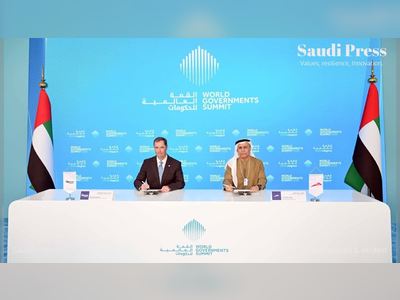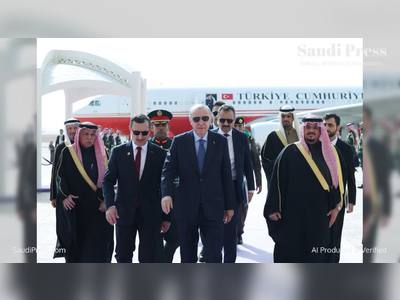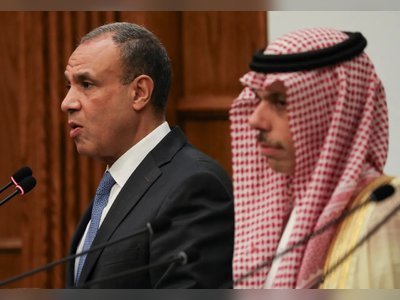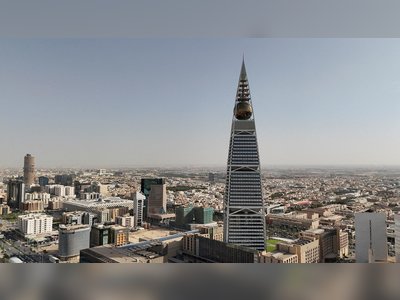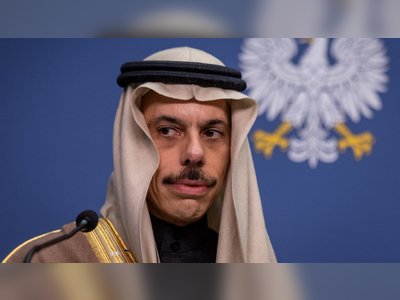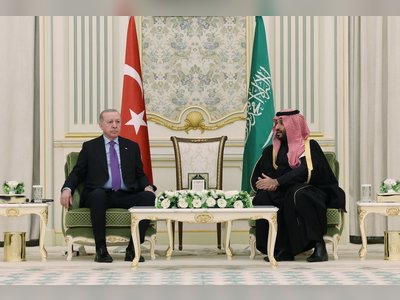Global Tensions Surge: US-UK Airstrikes in Yemen, Diplomatic Shifts in Iran, and Israeli-Lebanese Struggles
US-UK airstrikes in Yemen heighten regional tensions, while Iran halts indirect talks with the US amid Middle East crises.
In a move that's raising international eyebrows, the US and UK have launched airstrikes in Yemen's Houthi-held province of Hodeidah, aiming to counter Houthi threats to civilian shipping. Meanwhile, Iran, accused by Yemen's Presidential Leadership Council of supporting the Houthis, is making diplomatic rounds, illustrating the intense regional tensions as international shipping routes face escalating threats.
Meanwhile, over in Lebanon, the Lebanese Executives Council is showering praise on Saudi Arabia for its continued humanitarian aid amidst ongoing tensions with Israel and Hezbollah. This gratitude underscores the need for increased international support as Lebanon grapples with conflict and economic crises, with Saudi relief efforts playing a pivotal role.
Shifting focus to Iran, they have cut off indirect talks with the U.S., citing the Middle East crisis following recent missile exchanges with Israel. Regional dialogues spearheaded by Iranian Foreign Minister Abbas Araghchi also underline Iran's alliances amidst this volatility, deeply intertwined with diplomatic and military pressures.
Across the water in the UK, a tribunal has ruled that anti-Zionism is protected as a "philosophical belief" under anti-discrimination laws. This follows the contentious case of Professor David Miller, whose remarks led to his dismissal yet have now been deemed to deserve protection in a democratic society, spotlighting debates over free speech and discrimination.
Over in Saudi Arabia, the Transport General Authority has paused the issuance of new delivery bike licenses amidst a regulatory review. This break coincides with enforcement actions on unlicensed riders, reflecting both growth and growing pains in the sector.
Lastly, on the climate front, Azerbaijan is spearheading a global push for a more ambitious climate finance deal ahead of COP29, aiming to mobilize trillions for developing nations. This effort seeks to enhance energy resilience and capacity as leaders work towards greater transparency and accountability in climate action.
Meanwhile, over in Lebanon, the Lebanese Executives Council is showering praise on Saudi Arabia for its continued humanitarian aid amidst ongoing tensions with Israel and Hezbollah. This gratitude underscores the need for increased international support as Lebanon grapples with conflict and economic crises, with Saudi relief efforts playing a pivotal role.
Shifting focus to Iran, they have cut off indirect talks with the U.S., citing the Middle East crisis following recent missile exchanges with Israel. Regional dialogues spearheaded by Iranian Foreign Minister Abbas Araghchi also underline Iran's alliances amidst this volatility, deeply intertwined with diplomatic and military pressures.
Across the water in the UK, a tribunal has ruled that anti-Zionism is protected as a "philosophical belief" under anti-discrimination laws. This follows the contentious case of Professor David Miller, whose remarks led to his dismissal yet have now been deemed to deserve protection in a democratic society, spotlighting debates over free speech and discrimination.
Over in Saudi Arabia, the Transport General Authority has paused the issuance of new delivery bike licenses amidst a regulatory review. This break coincides with enforcement actions on unlicensed riders, reflecting both growth and growing pains in the sector.
Lastly, on the climate front, Azerbaijan is spearheading a global push for a more ambitious climate finance deal ahead of COP29, aiming to mobilize trillions for developing nations. This effort seeks to enhance energy resilience and capacity as leaders work towards greater transparency and accountability in climate action.
